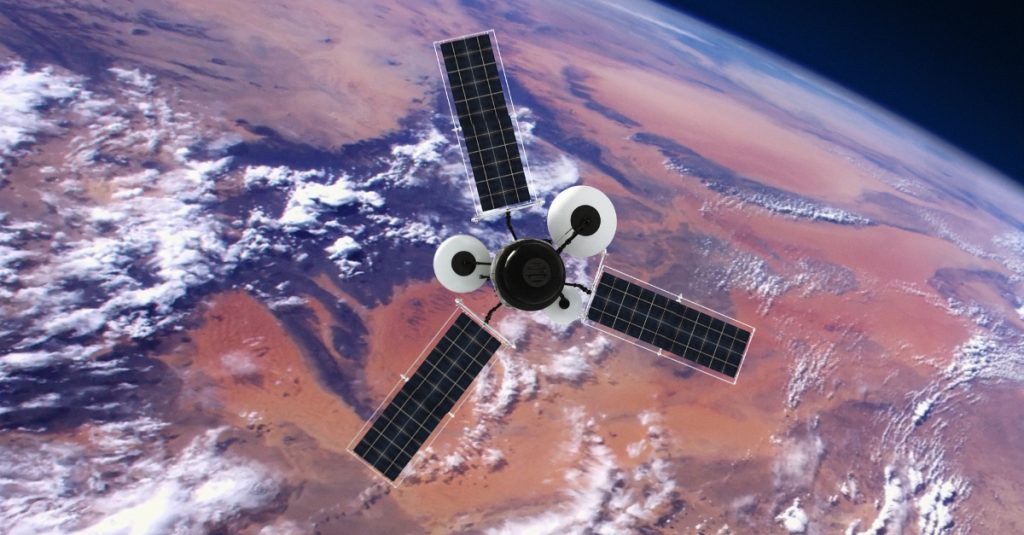The UK has established itself as a global powerhouse in the space sector, with Earth Observation (EO) and Geospatial Intelligence (GI) at its core, developing new and exciting opportunities to explore a potential career in space technology!
This dynamic field offers a wealth of opportunities for individuals passionate about technology, problem-solving, and making a tangible impact on the world.

Why Choose a Career in Space Technology?
The space industry is experiencing exponential growth, driven by technological advancements, increasing demand for data, and a growing awareness of global challenges. This surge has created a fertile ground for skilled professionals seeking fulfilling and impactful careers.
- Solving Global Challenges: Space technology is instrumental in addressing critical global issues such as climate change, natural disasters, and food security. By working in this field, you contribute to finding sustainable solutions and improving lives worldwide.
- Innovation at the Forefront: The space sector is a hotbed of innovation, offering opportunities to work with cutting-edge technologies and develop groundbreaking solutions.
- Job Security and Growth: The industry’s robust growth and expanding applications create a stable job market with excellent career progression prospects.
- Diverse Career Paths: From data analysts and engineers to project managers and consultants, the space sector offers a wide range of roles to suit various interests and skill sets.

Key Roles in Earth Observation and Geospatial Intelligence
The EO and GI sectors encompass a diverse array of roles, each demanding a unique skill set and contributing to the overall success of space-based projects.
- EO Analyst: Analyse satellite imagery and data to extract valuable insights for applications in agriculture, environmental monitoring, urban planning, and disaster response.
- EO Project Manager: Oversee EO projects from conception to completion, ensuring alignment with client objectives, budget, and timelines.
- EO Advisor: Provide expert guidance on EO technologies, applications, and market trends to clients and stakeholders.
- EO Consultant: Offer specialised EO services, such as data analysis, report generation, and project management, to address specific client needs.EO Specialist: Possess in-depth expertise in specific EO applications, such as oceanography, climate modeling, or land use change.
- GIS Analyst: Utilise Geographic Information Systems (GIS) software to analyse spatial data, create maps, and visualise geographic information.
- GIS Technician: Support GIS analysts by collecting, processing, and managing geographic data.
- GIS Consultant: Provide expert GIS advice to clients, helping them solve spatial problems and make informed decisions.GIS Developer: Design, develop, and maintain GIS software applications and systems to meet user requirements.

The Importance of Education and Skill Development
A strong foundation in STEM subjects is essential for a successful career in space technology. Many universities offer undergraduate and postgraduate degrees in geography, environmental science, remote sensing, and GIS.
Key skills for these roles include:
- Data Analysis and Visualisation: Proficiency in statistical analysis, data mining, and data visualisation tools.
- Programming: Knowledge of programming languages such as Python, R, or C++ to manipulate and analyse data.
- GIS Software: Expertise in GIS software packages like ArcGIS, QGIS, or Google Earth Engine.
- Remote Sensing: Understanding of satellite sensors, image processing, and data interpretation.
- Problem-Solving and Critical Thinking: Ability to analyse complex problems and develop innovative solutions.
The UK’s Space Industry
The UK government’s commitment to the space sector has fostered a thriving ecosystem of innovation and growth. The UK Space Agency’s ambitious goals, coupled with private sector investment, have positioned the UK as a global leader in space technology.
- Government Support: Significant government funding and policies have created a favourable environment for space-related businesses.
- Private Investment: A growing number of private companies are investing in space technology research and development.
- Talent Pool: The UK boasts a strong pool of skilled professionals and graduates entering the space industry.
- International Collaboration: Partnerships with international space agencies and companies enhance the UK’s global influence.

Building a Successful Career in Space Technology
To build a successful career in space technology, it’s essential to stay updated on industry trends, develop a strong network, and continuously enhance your skills. Consider pursuing professional certifications, attending industry conferences, and engaging in research to stay ahead of the curve.
By combining academic knowledge, practical experience, and a passion for exploration, you can carve out a rewarding and impactful career in the exciting world of space technology.
To explore exciting career opportunities in Earth Observation and Geospatial Intelligence, visit our careers page. We’ll also be posting any available positions here, so stay tuned!
